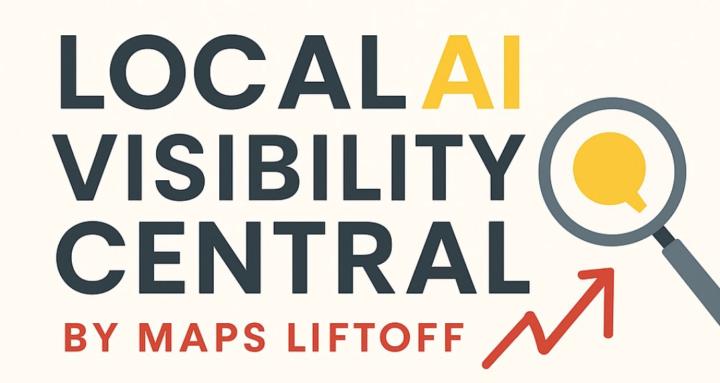Aug '25 • General discussion
This Week at MapsLiftoff
Office Hours: Wednesday at 11:00am PT / 2:00pm ET — bring your AI Mode + Core Update questions.
What “AI Mode” means for us (quick summary)
- What it is: Google’s new AI Mode is an end-to-end, conversational search experience. It breaks a query into sub-topics, researches across the web, and returns a synthesized answer with links—think “AI Overviews on steroids.” It’s rolling out in the U.S. and expanding beyond Labs. blog.googleGoogle HelpHome
- Why it matters: More zero-click answers at the top of the SERP means fewer default clicks to classic blue links. Our job shifts from “rank to get the click” to “become the cited source” inside AI responses. The Verge
- How it’s tracked: AI Mode traffic is now included in Search Console totals (clicks, impressions, position). There isn’t a dedicated filter yet; it’s blended into performance data. Search Engine Land
What to do about it (now):
- Add a 120–200-word answer-first summary to key pages (the bit most likely to be quoted), followed by depth, sources, and schema. Google Help
- Tighten entity signals (consistent name/address, author bios, About/Contact transparency) so Google can safely cite you. Google for Developers
- Track changes in GSC by segmenting branded vs. non-branded and page type; expect CTR to wiggle without rank loss. Search Engine Land
Core Updates: what actually changed (and how SEO/marketing must adapt)
Timeline: The June 2025 Core Update ran June 30 → July 17 (16 days, 18 hours). It’s a broad update aimed at surfacing more relevant, satisfying content. Google Search StatusSearch Engine Land
Notable shifts we’re seeing across accounts & industry data:
- E-E-A-T & topical authority tightened. Pages that show firsthand experience, clear authorship, and subject-matter depth are faring better; thin or generic pages lost ground. Google for DevelopersSearch Engine Journal
- Volatility clustered by vertical. News, health, finance, and shopping saw bigger swings; some sites hit by prior updates show partial recoveries. Coalition Technologies
- AI surfaces influence behavior. AI answers (and related features) are absorbing attention—even when your rank holds—so CTR can drop without position changes. Coalition Technologies
- Retrieval tech is evolving. Google Research announced MUVERA (faster multi-vector retrieval) and Graph Foundation Models for relational data. Google hasn’t tied these explicitly to the core update, but a Googler has said they use something “similar to MUVERA,” which hints at more sophisticated matching and relationship modeling ahead. Google Research+1Search Engine Journal
- May “tremors” preceded June. Independent trackers flagged unconfirmed volatility around May 12–13 and May 20–21, likely testing/refresh activity before the core update. SEO NewsPepper Content
Marketing implications (beyond SEO):
- Content → Design for citation: concise answer block + evidence (original photos, data, quotes), then thorough depth. This also fuels email, social, and ads with useful snippets. Google for Developers
- Brand → Strengthen entity & trust assets (bios, credentials, policies, reviews). Your brand’s clarity is now a ranking and citation advantage. Google for Developers
- Analytics → Expect post-update attribution noise. Monitor by page groups and intent stage; don’t overreact to short-term swings. Search Engine Journal
- Technical → Clean architecture, internal linking, and schema amplify topical signals, helping both classic ranking and AI citations. Google for Developers
Your 7-day action plan
- GSC pulse-check: Last 28 days vs. prior; split branded/non-branded; flag pages with position steady but CTR down (possible AI Mode displacement). Search Engine Land
- Upgrade 10 pages: Add an answer-first section, source citations, and FAQ schema; improve authorship and “Who/How/Why” transparency. Google for Developers
- Entity tune-up: Ensure NAP consistency, enhance About/Contact, and align author bios with real expertise. Google for Developers
- Internal links: Map 3–5 supporting pages to each priority page; use descriptive anchors to reinforce topic clusters. Google for Developers
2
4 comments

skool.com/mapsliftoff
From Maps Liftoff, Brian Willie & Michael Clay. Master Local AI-driven visibility and get found everywhere.
Powered by





